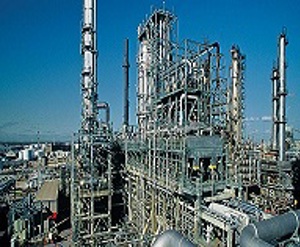LyondellBasell Houston coker restart expected by mid-June
5/23/2016 9:43:58 AM
HOUSTON (Reuters) - A coking unit at LyondellBasell Industries' Houston refinery is expected to restart between late May and mid-June for the first time since being damaged in an April 8 fire, Gulf Coast market sources said.
The refinery, which has a capacity of 263,776 bpd, is expected to reach a daily crude oil intake of 200 Mbbl (thousand barrels) this week for the first time since April 15.
A Lyondell spokesperson said the company expects the coker to return to production by the end of 2Q, but declined to comment on the status of other units at the refinery. The coker was one of four units shut between April 8 and 15 in a string of unit outages and accidents at the refinery that forced production down to 85 Mbpd.
Between May 1 and May 8, Lyondell restarted the small crude distillation unit (CDU) and two vacuum distillation units (VDUs), which were shut due to leaks. The large CDU remained in operation, though at reduced throughput.
CDUs do the initial refining of oil coming into a refinery and provide feedstock to all other production units. VDUs and cokers refine the residual crude the CDUs could not process, increasing refining yields. Cokers also convert residual crude that cannot be refined further into petroleum coke, a coal substitute.
If the VDUs and cokers are not operating, refineries have to cut the amount of crude oil being processed by the CDUs.
The 42-Mbpd coker is undergoing repairs from the fire and to piping that refinery officials believe suffered extensive corrosion during at least two decades of use. The wall of the pipe that ruptured igniting the April 8 blaze was reported to have been very thin due to abrasion and corrosion from the petroleum coke passing through it.
There are two cokers at the refinery. The 57-Mbpd coker remains in operation.
The refinery has ordered over 1,000 ft of Chrome-Moly pipe to replace piping on the shut coker. Chromium and molybdenum would make the coker piping more resistant to corrosion than the piping that failed, the sources said.
(Reporting by Erwin Seba; editing by Paul Simao and Alan Crosby)







Comments